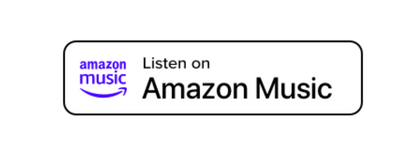The story of the Intelligent Automation w/Ian Barkin
“RPA as a technology was interesting, but RPA as a paradigm-shift or archetype for continuous improvement, humans-striving to matter to have purpose... That’s what’s so amazing about this space! That’s what the people wanted. This is the origin story of Citizen Development.”
A note from Host: Citizen Development is a concept that enables business users to leverage technology to improve, innovate, and automate their work.
As a business user, understanding the technology is a must-to-have for one to stay innovative and disruptive. As time pass, roles change, and the job requirements significantly adapt to technology’s advancements. Constantly strive to learn new skills to stay relevant.
As a technology company in the future of work space. Don't try to invent the next word in your field. Make it people and customer-centric, so that they can adopt, use and utilize your products to innovate their work, businesses, and products - Ian BarkinToday’s guest — Ian Barkin
Co-Author of Intelligent Automation Book
Instructor at LinkedIn Learning
External Advisor at Bain & Company
Board of Advisors at Skan.ai and many others.
ex-Chief Marketing Officer at Sykes Inc.
ex-Co-Founder & CSO at Symphony Ventures Inc.
Automation Area — Intelligent Automation / RPA
Listen to the full episode :
About the Episode
In today's episode, it was my pleasure to host my friend and ex-colleague, Ian Barkin. Ian and I crossed paths at the company he co-founded, Symphony Ventures, one of the earliest pure-play process automation services firms in 2016. Ian has witnessed firsthand the inception, evolution, and growth of RPA and Intelligent Automation and the advancement of the Future of Work technologies like OCR, ML, Process Intelligence, and Low-Code/No-Code.
He is an entrepreneur, author, advisor, investor, and influencer in intelligent automation and the future of the work technologies space. As an entrepreneur, he raised funding rounds and went through acquisitions that led him to take the role of Chief Marketing Officer at Sykes Inc. Ian pioneered and helped create and expand this space.
His thought leadership is training thousands of people to get started with process automation, reducing the barriers of entry to the space while advancing the understanding of it. As part of Ian’s initiative to focus on the future of work, he has developed courses on RPA, Intelligent Automation, and Process Intelligence. He is also co-author of the first book to explore Intelligent Automation.
Make no mistake, he is a true #MasterofAutomation.
Some questions we discussed:
How did you get started with RPA and process automation?
What made you passionate about the future of work? What inspired you to dedicate yourself to being a thought leader, teacher, and investor in this space?
What do you think is coming next in the future of work space?
For those adopting the future of work technologies, what should they look out for?
Why should you care?
Hear Ian’s personal story on how he joined the process automation world
To be successful as a citizen developer, understanding the technology in addition to the business and process is essential.
When the learning stops, the relevancy in the job market also stops. For you to continuously change the world around you, each individual needs to innovate and build products and automation.
Episode Transcript
Alp Uguray, Creator & Host (00:00):
Welcome to the Masters of Automation podcast series with Ian Barkin, the Grand Master of Intelligent Automation. Ian welcome
Ian Barkin (00:11):
Alp, it is a pleasure to be here and for anyone listening, I didn't suggest Grand Master is a title, so help came up with that. Thank you.
Alp Uguray, Creator & Host (00:22):
It's a great title. <Laugh>. So along with Master, you are, you're the co-author of Intelligent Automation book. You are a thought leader and educator of the RPA classes on LinkedIn, you're an investor and advisor of many startups, and I've seen just yesterday, I think, SkanAI announcement as well. You're part of the entire future of work ecosystem that is building and developing. And also you are the co-founder of Symphony Ventures, which is first company that I joined as an RPA consultant, as a sixth employee, and it's, it's been a great time.
Ian Barkin (01:09):
All of those things are true and it's been a great journey. It's been wonderful to play some small part in everyone's journey and contribute to the evolution of how enterprises do what they do has been energizing, has been a lot of fun. So, and thank you for being part of the symphony story because I think we I think all of us sys who had a chance to, to spend any time there felt how special it was, how lucky we were t,to be in the group and the family that we were in. Addressing the challenges, working with the clients, and being on the journey we were on together. It, it's, you know, it's <laugh>. It's, it's, it's some of my, my greatest memories from my career and it's all downhill from there. Everything else. No, just kidding. Hopefully, hopefully everyone is, is enjoying themselves and, and, and we all do great things throughout our career.
Alp Uguray, Creator & Host (02:07):
The skill and the talent that Symphony grew and now everyone is scattered around. There are so many companies as part of the future of work ecosystem, it's very impressive and amazing to actually look back and see how everything changed.
Ian Barkin (02:26):
We were early. We, we stood on shoulders of, of friends and giants. There were VirtualOps, and Genfour preceded us by a little bit a year and sort of two years I think, but remained friends of ours. Some folks who worked for them ended up working for us, and then vice versa, some folks who work for us now work for, for one of them that that's still in business, but there really has been this interesting diaspora, as you say, of, of folks who, who have spread out and are contributing their knowledge and experience far and wide to other software startups, to other services firms. So, yeah, no, it's a fun space. And and where is it going next? I don't know. I think one of the challenges is we've we've, we've created this situation for ourselves that we now have to lay in and figure out. There was a message in the market that, that that sort of got the wheels turning, but it was around simplicity and ease of use and speed of implementation that wasn't ever necessarily true, but sounded great <laugh>.
(03:34):
So now we can tend with that where digital transformation is a heck of a lot harder than people thought it might be. It's why so many have failed, and so it's why talent and really robust commitment to skill development and training and onboarding is the foundation for anybody who's trying to get into the space. Any enterprise or consultancy that's trying to be great at what they do you really do need to emphasize talent first, tools second.
Alp Uguray, Creator & Host (04:07):
The people comes first and then the technology. If we set the clocks back now and then, then think about your first times hearing about RPA and the words of process automation. How, how did you get started with process automation?
Ian Barkin (04:28):
Yeah. so a lot of RPA originated from it. It, it solved a problem or it emulated services that were already being delivered in a different manner with a different mechanism. So my career before RPA was in BPO was in business process outsourcing. And BPO is simply tapping into talent outside of an organization's walls. So it's tapping into talent BPO's most characterized with talent that is outside not only of your walls, but outside of your, of your region. So it's, it's finding people near shore or offshore near shore, meaning closer to you usually for time zone or language neutrality purposes. So, folks in like Latin America or offshore folks in India or the Philippines, et cetera. So BPO was tapping into that talent and leveraging that talent to conduct transactional, mundane, routine tasks that were imperative to the functioning of any business.
(05:34):
And then RPA came along. So I was in the BPO space, so I was, I was solutioning and designing and delivering large outsourcing contracts. And in 2012, the concept of RPA was not introduced, but it sort of it appeared, it had been around for a little while, but it was given a new name, rpa, so robotic Process Automation which, you know, it's always important. Arose by any other name <laugh>, an automation suite of configurable tools by any other name would probably not have taken off as fast as, as RPA did. And so we started playing with it because it emulated that which we were already doing. It was a means of conducting routine mundane transactional processes that, in some cases augmented the offshore labor and in some cases alleviated the need for offshore labor.
(06:31):
And that's how I got into RPA is I was in bpo, I was in the right place at the right time and learned about rpa and then found some clients that we were already delivering for where we could take a look at how we might supplement the traditional forms of delivery with this new, exciting, shiny robotic form of delivery. And, it worked. So that was back in 2012.
(07:01):
And then by 2014, we believed so strongly that it worked, that we took the leap, we being, the founders of Symphony in this case. But again, as I said in in a peer group of other founders who also had the same belief and had the same commitment, and had the same ability to take a risk and take a leap. And we started Symphony and the rest is history of a lot of other people have taken that leap since. There are a lot of great rpa, peer play boutique consultancies of, of folks who come from the same sort of origin story, but now see the power that automation can play in developing alternative delivery solution models.
Alp Uguray, Creator & Host (07:45):
Yeah. And it's very interesting that it's, it started as the back office automation for the BPO and then a large processes and to help them maybe bring with efficiency, find non compliant tasks, be more standardized. And now the narrative is more like the future of work technologies is the broader umbrella that has citizen development, has front office with call center agents and tracking with automation, with rpa, or we are launching bolts and analytics running on the background <laugh> and measuring the, all the value for the business. So what made you passionate about the future of work technologies throughout this journey, and what inspired to continue the work on it and then participate in it?
Ian Barkin (08:40):
Yeah, it's interesting -- what made me passionate about it early on is different than what keeps me passionate about it now. What made me passionate about it early on was that it was innovation. That it was the application of technology to, to do things in a different, exciting, modern way, right? And not to say that I didn't enjoy traveling all over the world and getting to know teams in India and Guatemala and Brazil and the Philippines and in China, et cetera. That was awesome. That was one of the greatest elements of my career back when I was on planes all the time. But the ability to augment and demo emulate with some sort of software technology was really exciting. In my, in my sort of older age and having done this for a while with folks like yourself and everyone else at Symphony and everyone else at all the other peer plays and everyone else in the client teams that we work so closely with, and the vendors is what keeps me energized about this space are the people in it.
(09:52):
Because as you related RPA as a technology was interesting, but RPA as a, this is sort of an old phrase, but as a paradigm shift, as an archetype for continuous improvement and for humans striving to matter to, to actually have a purpose. That's what's so amazing about this space because that's what people really wanted. That's what that, that's, that is the origin story of citizen development. Citizen development is partly people wanting to develop modern futureproof skills so as to ensure long term career stability and upward growth potential, eh, sort of, but it's mostly that just software is eating the world, and these people are told they're transactional business folks, and that what's really going on is, is technology, digital transformation and innovation makes you feel like you're left out. And so citizen developers want to just matter. They just want to bring to the table their understanding implicitly of process of, of the company's strategy, of the needs of their clients or customers.
(11:09):
They wanna bring that to the table. And the only way to do that these days is to also come with some sort of, and inherent understanding of how technology is supplementing the way that we've traditionally done things. And so it's, it's that, it's, it's, that's what keeps me really excited and engaged in this industry, is all of these people who, who wanna matter and who wanna bring their purpose and their vision to these design discussions and customer care discussions and delivery operations. And it's why I, I'm, I'm so lucky to, to be able to, to have played some small part in the learning journey that so many have gone on and so many hundreds of thousands have taken the courses I've put out, and I, I, I'm really proud of that and, and blessed that they, they gave me a few minutes to drone on to them about what it is I've learned over my journey, and I'm just so thrilled to, to be some small part of, of theirs.
Alp Uguray, Creator & Host (12:09):
And that's very inspirational. It's very inspirational because, people, as they look into their jobs, they need to supplement it with technology to be better, to still continuously matter, and stay relevant. So as we think about it, the people is at the core of this, right? Like, if, if they're able to adapt to the current environment and able to pick up the skill set that's needed with AI, automation, low code, no code interfaces, they'll be able to better innovate the companies that they're in and then that change the work that they're doing, and then that creates more space and more opportunities and more products. So as this continuously evolve, what do you think is coming next in the future of workspace? And, and I, I know you, early on you mentioned the space is very noisy with complex views, and simplification is required. So we can open that a little bit.
Ian Barkin (13:16):
Maybe I'm just speaking for myself here, but it, it really is too confusing at this point. And the reason is too confusing is because there's a lot of energy and a lot of excitement and a lot of money and a lot of innovation and entrepreneurship in the space, which makes for a lot of vendors, which makes for a lot of messages. And most vendors feel the need to have their own name for things. So you end up with all sorts of different just
(13:47):
Acronyms, brands, Yeah, acronyms just a nomenclature that is, is people are trying to control and own a market by having the next best name for document process or actually next best name for character recognition or voice recognition, or just machine learning or, or process automation. And so that just makes it really hard for anybody who's newer to this space and just as hard for anybody who's old in this space to, to discern what it is that's actually happening. And so I don't think complexity makes things better, and in fact, I think it, it makes the worse. You know, over time, this is sort of a, this is a Darwinistic thing. Over time there will be fewer than there are today just because not every one of, of these organizations can survive. Some will be purchased and integrated, some will be rolled up, some will just cease to exist. So that'll, that'll simplify the landscape a little bit. But what's next? Procedure all about how you get your teams upskilled and knowledgeable, all about how you choose a focus point. Is your focus point using as many cool tools as possible, or is your focus point making customer pain go away forever and create proactive predictive customer delight because you just start to do things well and design things well for, for good outcomes.
Alp Uguray, Creator & Host (15:18):
If you think about it, then, if for the widespread adoption of these products, the barriers to entry to learn them should be lower so that people can quickly grasp it and quickly apply it to their lives. But also the product needs to be good so that we, it executes well,
Ian Barkin (15:38):
That's, you also have to, you have to understand the needs and, and the capabilities of your end audience. Not even market or customer, but audience, Most users just want stuff to work. I just want it to get me from point A to point B, and I want it to be enjoyable. And I feel that's the same with any of these future of work technologies is it just has to work and has to work seamlessly. And, and it, it works the best if I don't even know it's working.
Alp Uguray, Creator & Host (16:09):
Yes. Yeah. So there's this simplification of why, how they're used should be, should be out there very quick to grasp, very quick to adopt and use. And then I wish we had more time to, to speak since we almost all <laugh> to clock.
Ian Barkin (16:30):
No, I'd be thrilled to come. I mean, always love chatting with you and, and kudos to you for, for pulling this together. You've always been passionate about sharing your experiences with the market, and I love that you've got this this voice in this channel to do that now. So I'm really excited for you. Wish you the best of luck with it and would always be happy to come back as, as a guest in future episodes.
Alp Uguray, Creator & Host (16:55):
Yeah, thank you very much and I would love to have you as a guest again and in the episodes, and I appreciate you taking the time and discussing the future of work.






